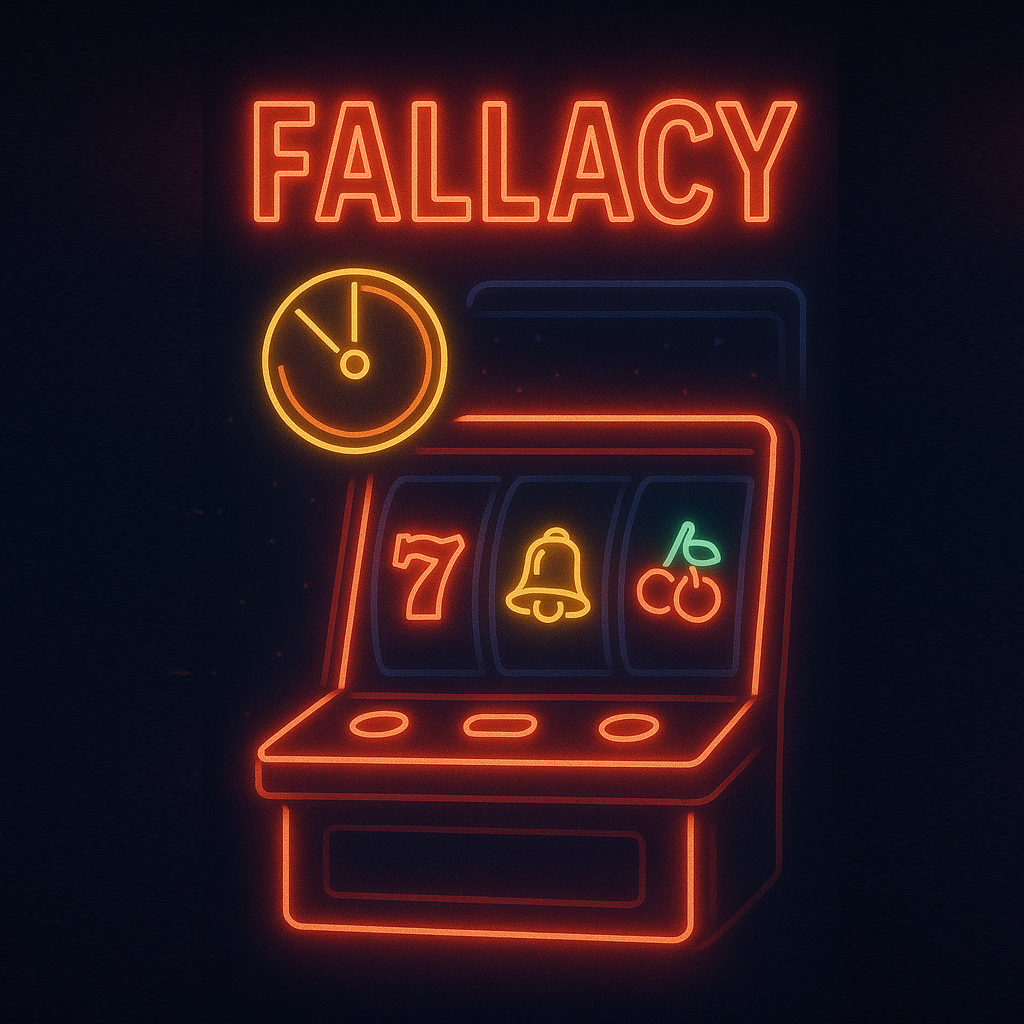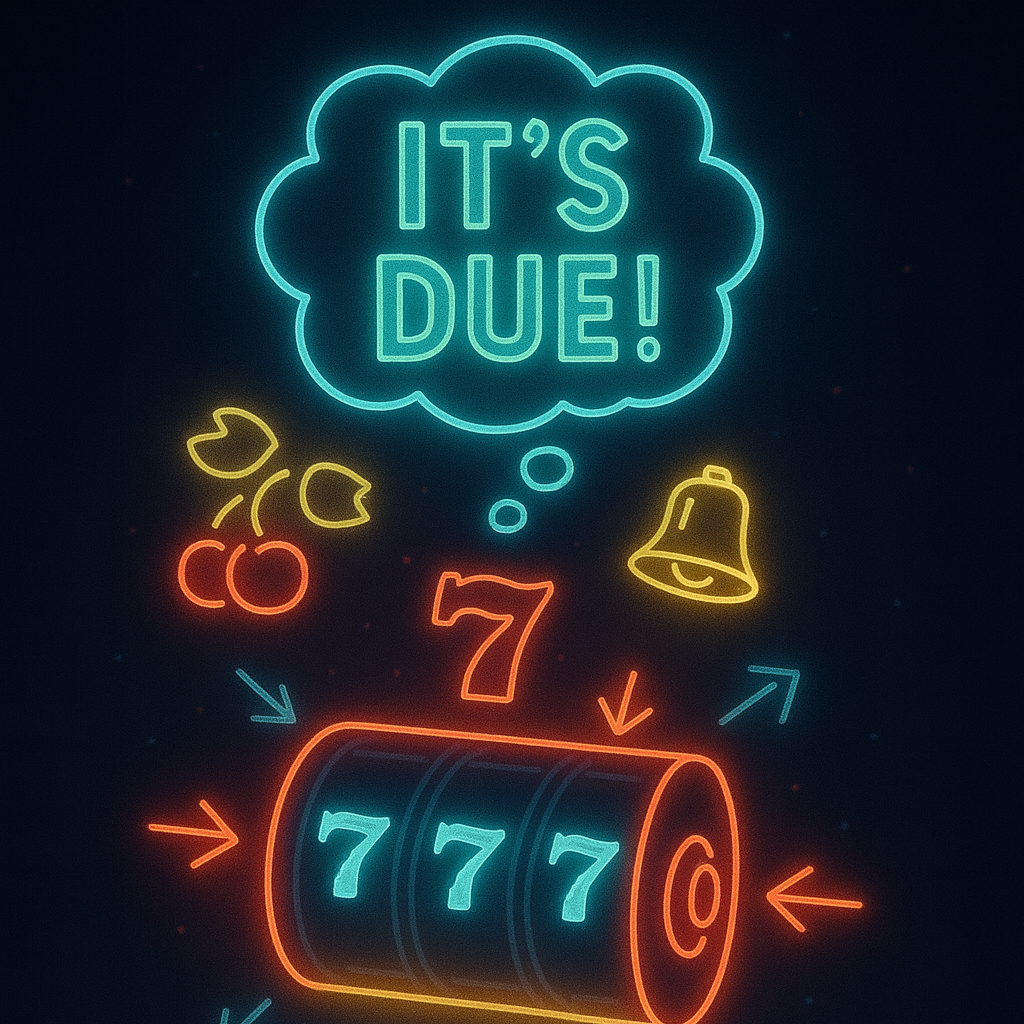
Slot Psychology: The Gambler’s Fallacy: Why Players Think a Win Is “Due”
- The “Due” Myth, players believe wins are more likely after losses.
- Pattern-Seeking Minds, humans see streaks where none exist.
- Truth in the Reels, every spin has the same odds, no matter what came before.
Slot Psychology: The Gambler’s Fallacy: Why Players Think a Win Is “Due”
Anyone who has spent time on a UK £500 jackpot slot will have heard someone say: “It’s got to pay soon” or “It’s due a jackpot.” This belief is so common it feels almost natural — but it’s actually a well-known psychological trap called the gambler’s fallacy.
The gambler’s fallacy is the mistaken belief that past outcomes influence future ones in games of chance. On a slot machine, that means thinking that a run of losses makes a win more likely, or that seeing two cashpot symbols means the third is bound to appear soon. In reality, every spin is determined by the random number generator (RNG). The machine has no memory, and the odds of hitting the jackpot are exactly the same on every spin, whether you’ve just lost 20 times in a row or hit a feature five minutes ago.
So why do so many players fall for this idea? The answer lies in how our brains look for patterns. Humans are natural pattern-seekers — it’s how we learn and make sense of the world. If you flip a coin and it comes up heads five times in a row, most people instinctively feel that tails is “due.” But mathematically, the next flip is still a 50/50 chance. The same is true on a slot machine: no matter how many losses you’ve had, the next spin carries the same odds as the first one.
UK machines often encourage these biases through design. For example:
-
Streaks and droughts: Long runs of no wins can make a player think the machine is “holding” money and is about to release it.
-
Near misses: Seeing two cashpot symbols makes players believe the third is more likely, when it’s still random.
-
Feature trails: Stopping just short of a bonus space on the board feels like the machine is teasing you, when in fact it’s simply chance.

There are also personal superstitions that feed into the fallacy. Some players swear by “lucky streaks,” certain times of day, or the idea that a machine “warms up” after a few spins, or pays out more when it is new. Others believe in physical actions, like pressing the start button in a certain way. None of these change the outcome — but they all strengthen the illusion of control.
The gambler’s fallacy isn’t unique to slots. It appears in roulette, betting, lottery draws, and even everyday decisions. But on £500 jackpot machines, it plays a particularly strong role because of how the games are designed. The constant mix of wins, losses, and “almosts” creates the perfect environment for the fallacy to thrive.
Understanding it is the key to seeing slots for what they are: games of chance with fixed odds. No matter how many losses have come before, a jackpot is never “due.” And no matter how close the reels look, the odds don’t change.
Next time you catch yourself thinking, “It’s got to happen soon,” remember: that’s not the machine giving you a hint — it’s the gambler’s fallacy at work. Recognising it won’t change the outcome, but it will give you a clearer view of how slots keep players chasing the next spin.